If you have health and fitness goals (even modest ones) and exercise at least two times a week, then supplementing with creatine can help you.
Do you hike, run, or bike? Instead of slogging your way up hills, imagine yourself crushing them and getting to the top with energy to spare.
What about in the weight room? Instead of squeezing out sloppy reps just to finish that set, imagine having the power to maintain a clean and crisp tempo through the end with a few reps still in the tank.
How about hitting the wall in your favorite workout class? Instead of slowing down or tapping out, imagine staying on point and in sync.
Yes, regardless of who you are and how you move, creatine can help you go harder for longer and recover faster. This means more productive workouts, which help you hit your fitness goals faster.
And performing better makes working out more fun, pleasurable, and—most importantly—effective. Right?
Here are some interesting creatine facts that may shock you:
- Many people are creatine deficient—some much more than others.
- Unless you’re currently supplementing with creatine, your energy metabolism isn’t as good as it could be.
- Although a creatine deficiency isn’t known to pose any serious health risks, balancing your creatine levels can help you achieve your health and fitness goals.
As it turns out, creatine is much more fundamental than most people know.
So, are you functioning in a creatine deficit? Are you curious how creatine supplementation can support you in achieving your health and fitness goals? Are you confused about which form of creatine you should buy and how to best use it?
Here are the answers to your most pressing creatine questions (and then some).
What Is Creatine?
Creatine is a naturally occurring molecule sourced in two ways: It's either synthesized by your liver or consumed directly from animal protein. In other words, your body makes some and you get the rest from your diet.
For the meat-eaters, approximately half of their creatine supply comes from their diet, and their body processes the rest. Plant-based eaters are limited to the creatine processed by their bodies from dietary amino acids, which tops out at approximately one gram per day.
Ninety percent of your creatine is stored in your muscles’ cells, waiting to be used as fuel. And unlike glycogen and oxygen, creatine can supply readily-available energy on short notice.
It’s like an afternoon espresso shot for your cells—excellent at giving you a turbo boost when you need energy fast but is relatively short-lived and is in short supply.
Creatine is one of the most researched and clinically-backed supplements, boasting a lead role in over 50,000 studies. The large body of research highlights mainly exercise and performance benefits, such as:
- Power output
- Muscle strength
- Athletic recovery
- Cognitive function
- Lean muscle mass
- Exercise performance
- Prevention of age-related muscle loss
These benefits are attractive, especially to those with fitness goals (more on this later). However, as you’ll learn, the need to consume creatine is much more fundamental than gym PRs.
Why You Probably Need More Creatine
Each day, one to two percent of your body’s creatine stores are broken down and excreted during energy production. These losses must be offset by dietary or supplemental creatine. Daily creatine requirements range from two to three grams depending on size, gender, and activity levels.
However, the average daily adult in the U.S. consumes just one gram per day for men and 0.7gram per day for women. (Although more recent studies suggest those numbers are probably closer to 0.35.)
In other words, getting enough creatine is incredibly tricky to do without supplementation, and the average person is likely well below their daily creatine requirement.
And this is just for baseline maintenance.
We’re not even talking about creatine levels required for optimal energy and performance, which most studies show is at least five grams per day. That’s well over five times the amount most of us are getting in our diets!
An active person would have to consume 5X their intake of creatine-rich foods like meat and fish to balance their creatine levels—which, to be honest, is not easy to sustain and is hard on the wallet.
And while creatine supplementation can benefit almost everyone, it’s especially vital for athletes, aging adults, and plant-based eaters who are at a higher risk for deficiency.
The good news is that a creatine deficit doesn’t necessarily compromise your health as vitamin or mineral deficiency might.
It just means that you’re functioning at a fraction of your full potential.
Supplementing with creatine will ensure you’re firing on all cylinders and will turbocharge your health and fitness efforts. Coupled with the right diet and exercise program, this means reaching your goals much faster than you otherwise would have.
Let’s dig deeper into the wide-ranging benefits creatine has to offer.
The Benefits of Creatine
Both in the short-term and as you age, creatine can support your health goals in some very profound ways. Here are three of the top three ways creatine can support your body and mind:
1. Enhanced Performance and Muscle Strength
We've already established that supplementation is essential for maintaining baseline creatine levels in active populations, but it also can significantly improve strength and performance.
A recent meta-analysis of 22 different studies showed impressive results from creatine monohydrate supplementation combined with resistance training. Subjects taking creatine improved:
- Muscle strength by 20% (compared to 12% with placebo)
- Weightlifting performance by 26% (compared to 12% with placebo)
- Bench press performance by up to 43% (compared to 16% with placebo)
Because of its ability to supply energy to muscles during exercise and higher intensity activities, creatine can also support performance in moderately active people.
So, despite its everyday use in the bodybuilding world, creatine isn’t just for lifting heavy weights. It’s for anyone with a regular exercise routine.
2. Better Cognition for Plant-Based Eaters
Because animal products are the primary dietary source of creatine, both vegetarians and vegans have lower creatine levels than those who eat meat.
This double-blind, placebo-controlled trial on vegetarians found that six weeks of creatine monohydrate supplementation (five grams per day) had a significant positive effect on working memory and intelligence.
Another double-blind study on young adult females showed that 20 grams of creatine supplementation over five days improved memory in vegetarians to an even greater extent than omnivores.
3. Prevention of Age-Related Muscle Loss in Older Adults
Aging naturally leads to decreases in muscle mass, bone density, and strength. However, there is evidence that creatine supplementation positively affects these age-related changes.
One study showed that short-term, high-dose creatine supplementation, independent of exercise training, led to increased body mass, enhanced fatigue resistance, increased muscle strength, and improved daily living activities for older adults.
Another double-blind placebo-controlled study on healthy, older women showed improvements in strength and performance when creatine supplementation was combined with a 12-week resistance training program. The creatine group also gained significantly more fat-free mass and muscle mass than the non-creatine group.
Creatine provides both your body and the brain with the energy to keep up with an active lifestyle’s daily demands. However, it may be even more essential for athletes, plant-based eaters, and aging populations due to its positive effects on strength, power, muscle mass, and cognition.
How to Choose the Best Creatine Supplement
There is a vast array of different forms of creatine to choose from, but not all suppliers use the same quality of raw materials or follow the same manufacturing standards.
Here’s what you need to know:
Creatine monohydrate is hands-down the best form of creatine available.
Here’s why:
- It has the most significant amount of scientific support.
- It has superior bioavailability and absorption.
- It is often less expensive than other forms of creatine.
However, not all creatine monohydrate supplements are created equally.
Consider the following when shopping for creatine monohydrate:
- Avoid fillers or additives. Additional ingredients are unnecessary.
- Ensure vegan sourcing for vegans and vegetarians.
- Check the quality of the raw materials and manufacturing standards.
What Makes Kion Creatine Different?
Kion Creatine is made with 100% Creapure®, one of the purest, highest quality forms of creatine monohydrate available on the market—the "gold standard" of creatine.
- Quality You Can Trust - Creapure® is produced in Germany using the purest raw materials, stringent manufacturing standards, and precise analytical control.
- Regularly Tested for Purity - Creapure® is on the Cologne List® and is tested for purity and banned substances regularly. By using only products of the Cologne List®, athletes reduce the risk of unintentionally becoming the victims of doping.
- Backed by Research - Compared to other creatine types, Creapure® has received the greatest amount of scientific study. It’s proven to be both safe for long-term use and incredibly effective.
- Superior Bioavailability - Creapure® is absorbed almost immediately after intake, with a bioavailability of over 95%. This means virtually all of the Kion Creatine you consume is used directly to fuel your body. No excess or waste.
- Vegan - Kion Creatine is vegan- and vegetarian-friendly. It’s exclusively manufactured by chemical synthesis, with no animal- or herbal-derived raw materials or intermediates. This makes it an ideal option for plant-based eaters to get creatine’s cognitive and performance benefits without consuming animal products. It is also Kosher and Halal Certified, as well as free of gluten and soy products.
How to Use Creatine: Your Questions Answered
If you're still feeling confused, here are 10 of the most commonly asked questions about Creatine:
1. How Much Creatine Should I Take Daily?
Take five grams of creatine per day. If desired, you can personalize your dosage to be anywhere between three to ten grams based on your size, muscle mass, activity level, and personal response to creatine.
2. Do I Take Creatine Before or After a Workout?
Either, depending on your goals. Creatine is best taken immediately before or after exercise to support recovery and muscle mass, or first thing in the morning to promote cognitive function.
3. Do I Take Creatine Every Day?
Yes. Take it once per day or as recommended by a health professional.
4. How Do I Know If Creatine Is Working?
In the short term, depending on your diet, exercise routine, and lifestyle, you may experience*:
- Improved exercise performance
- Delayed onset of muscular fatigue
- Quicker recovery between workouts
In the long term, depending on your diet, exercise routine, and lifestyle, you may experience*:
- Increased lean muscle mass
- Improved body composition
- Improvements in overall exercise performance and capacity
- Accelerated progress towards your health and fitness goals
*There is evidence to suggest a percentage of the population are “creatine non-responders,” meaning their responses to creatine supplementation may not be as physically-evident as others, or they may take longer. You may still experience benefits from supplementing with creatine, even as a non-responder.
5. Do I Need to Cycle Creatine?
Not if you are taking a high-quality form of creatine monohydrate like Kion Creatine. Kion Creatine is safe to take on a daily, long-term basis, and cycling is unnecessary.
6. Do I Need to Load With Creatine?
No. Even though a creatine loading phase may result in acute increases in strength and body weight, daily supplementation over a longer period will lead to similar results.
7. Is Creatine Bad for Kidneys?
Creatine at normal doses is not bad for kidneys. However, those with kidney issues should exercise caution.
Kidney health is a common concern with creatine supplementation because high doses may increase creatinine levels, a biomarker for compromised kidney function.
However, long and short-term studies have found that creatine doses of up to 10 grams per day don’t impair kidney health in people with healthy kidneys.
More long-term research is needed for those with compromised kidney health. If you have a history of kidney issues, speak with your doctor before supplementing with creatine.
8. Will Creatine Make Me Gain Weight?
Creatine may cause gains in lean mass and improvements in body composition through some amount of water retention.
While higher loading doses can cause water retention that may exceed five pounds, lower supplemental doses will typically cause minimal weight changes outside of muscle mass gains.
9. Should Women Take Creatine?
Despite the common misconception that creatine will cause weight gain (dispelled above), creatine actually offers some unique benefits to women, especially those who are concerned about maintaining their health and quality of life as they age.
Women over 50 can experience a significant loss of muscle mass and bone density. As this study demonstrates, creatine combined with regular exercise can help mitigate age-related declines in health and function and even improve postmenopausal women’s quality of life.
10. What Else Should I Know About Creatine?
Here are some additional things to keep in mind when supplementing with creatine:
- Storage - Store creatine in a cool, dry place like your pantry or cupboard.
- Max Serving - There are currently no reported serious side effects of creatine supplementation. However, some studies report users may experience gastrointestinal distress such as nausea or loose stools at single doses above 10 grams. Unless recommended by a health professional, it’s best to stick to the recommended dose of 3-10 grams of creatine per day.
- At-Risk Populations - Individuals with kidney issues or high baseline levels of creatinine should exercise caution when taking creatine. If you are pregnant, breastfeeding, under the age of 18, currently taking prescription medications, or have diabetes or bipolar disorder, please consult with your physician to determine if supplementing with creatine is right for you.
Ki Points on Creatine
The most important takeaway from this article is that most people are operating in a creatine deficit and could benefit from creatine supplementation.
Other important pieces to remember:
- Creatine fuels your muscles, brain, and organs and is especially important during exercise.
- Re-establishing a creatine balance is extremely difficult and impractical without supplementation.
- Active adults, vegans and vegetarians, and aging adults have the most to gain from creatine supplementation, considering that they are among those who live with the largest deficits.
- The best form of creatine is creatine monohydrate.
- When considering different brands, pay special attention to sourcing, raw material quality, and manufacturing standards.
- Supplementing with creatine can…
- Shore up a creatine deficit
- Improve exercise performance
- Accelerate the attainment of health and fitness goals
- Enhance cognition
- Mitigate age-related loss of muscle mass, strength, and function
Made with 100% Creapure®, Kion Creatine is the purest creatine monohydrate available, and is always:
- Produced in using the purest raw materials, stringent manufacturing standards, and precise analytical control.
- Regularly tested for purity and banned substances.
- Heavily researched and proven to be both safe for long-term use and incredibly effective.
- Highly bioavailable (over 95%), meaning virtually all of the Kion Creatine you consume is used directly to fuel your body. No excess or waste.
- Vegan- and vegetarian-friendly, Kosher and Halal Certified, and free of gluten and soy products.
For the gold standard of creatine, check out Kion Creatine.



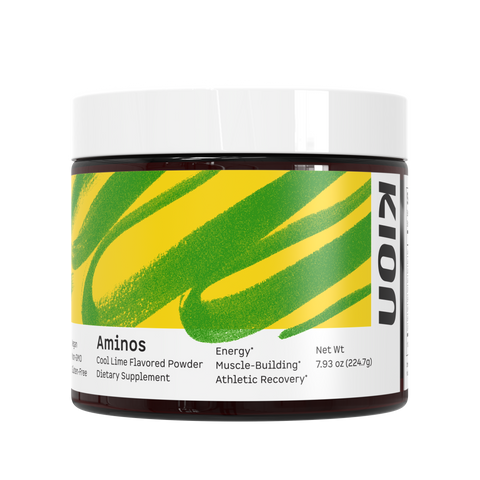
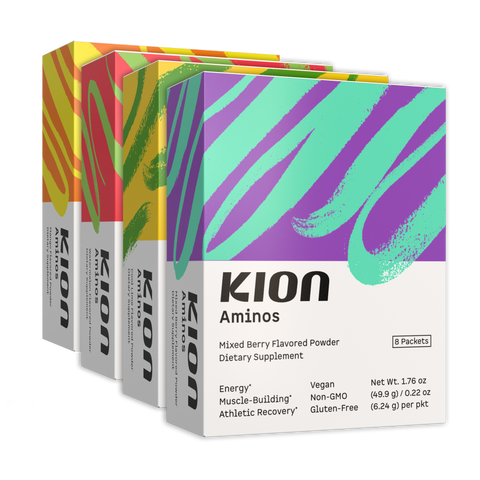
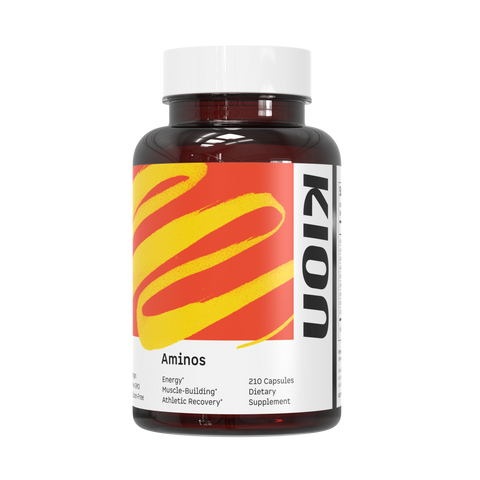
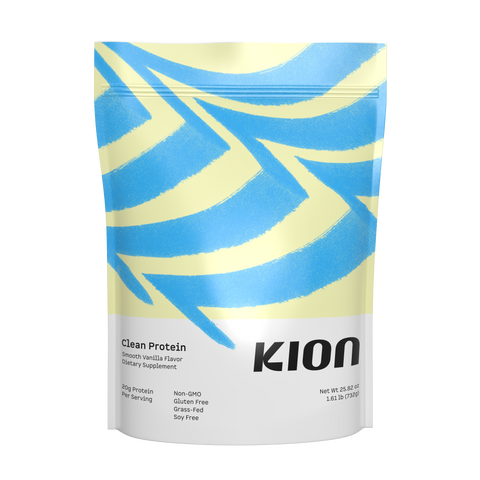
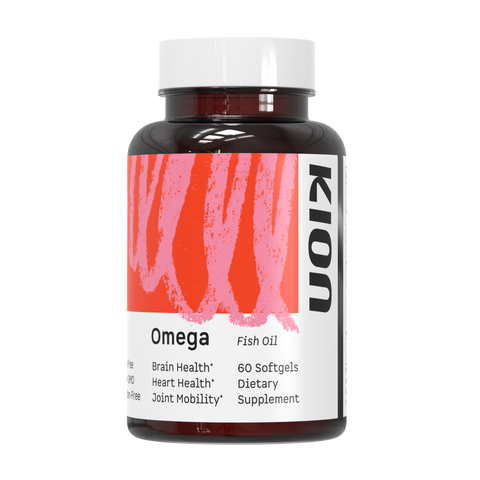
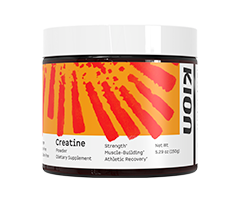
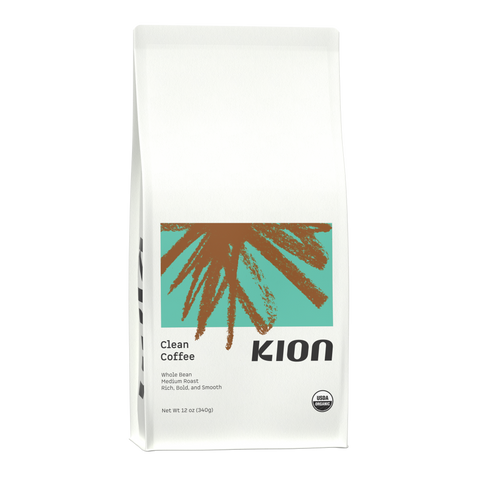
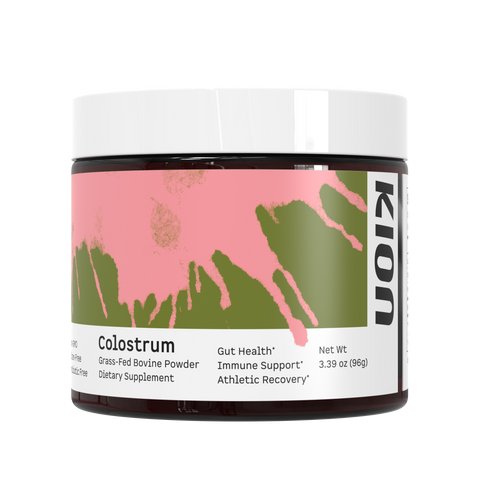
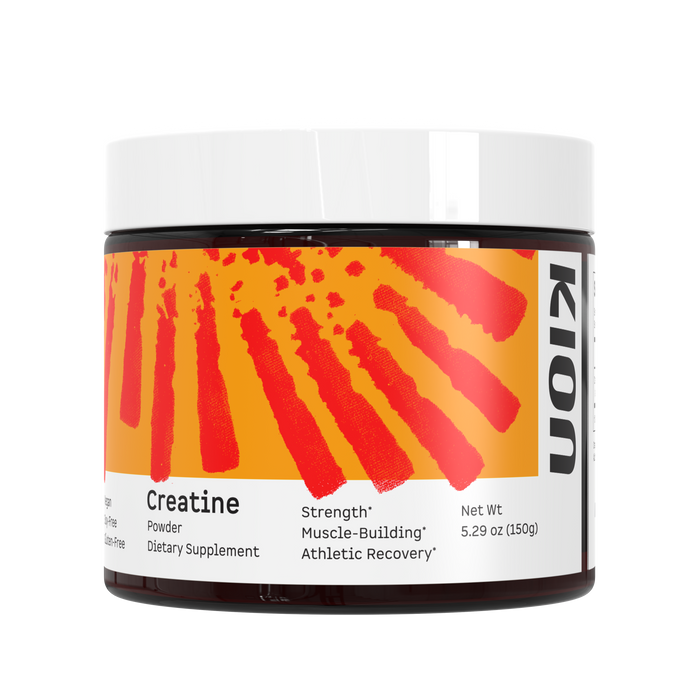




Comments
How and when is the best time to take creatine along with the amino acids? Should I take them together at the same time?
———
Kion replied:
The most important factor with creatine (or both products frankly) is to ensure you are taking it daily, not just active days. As far as taking them together, most certainly you can. They are in many ways complimentary supplements and one will not interfere with the benefits of the other.
Tiffany on
Is it okay for teenage females to take creatine? My daughter is 5’6” and lifts weights 2x’s week. But is just 15yo with fluctuating hormones.
———
Kion replied:
We always recommend seeking a physician’s advice prior to beginning with any supplement, especially for kids and young adults. For many reasons, young athletes might not have the same need for creatine, one of which being the fact that this population is typically much more efficient in extracting nutrients from diet when compared to older populations. While creatine has been extensively studied in adult populations, studies investigating usage by young adults are lacking. Creatine usage, especially in high school males is very prevalent (as high as 30% in football players ‡ <https://pubmed.ncbi.nlm.nih.gov/12085493/>) however given the lack of clinical research, we cannot in good faith give a recommendation one way or the other.
Carleen on